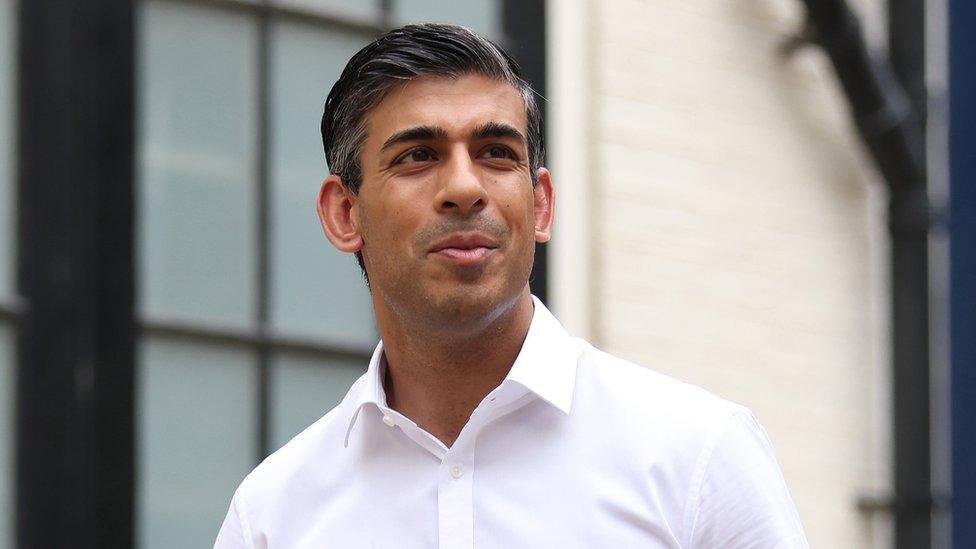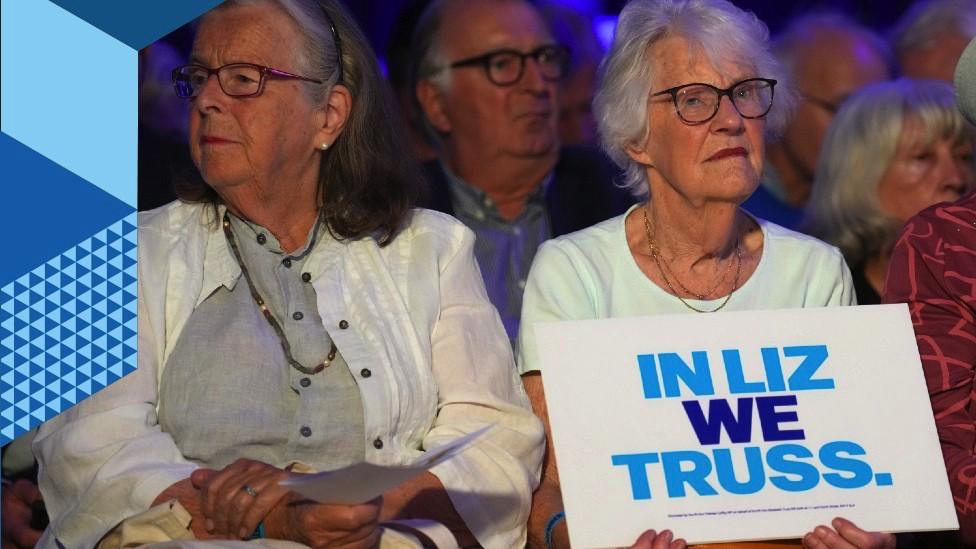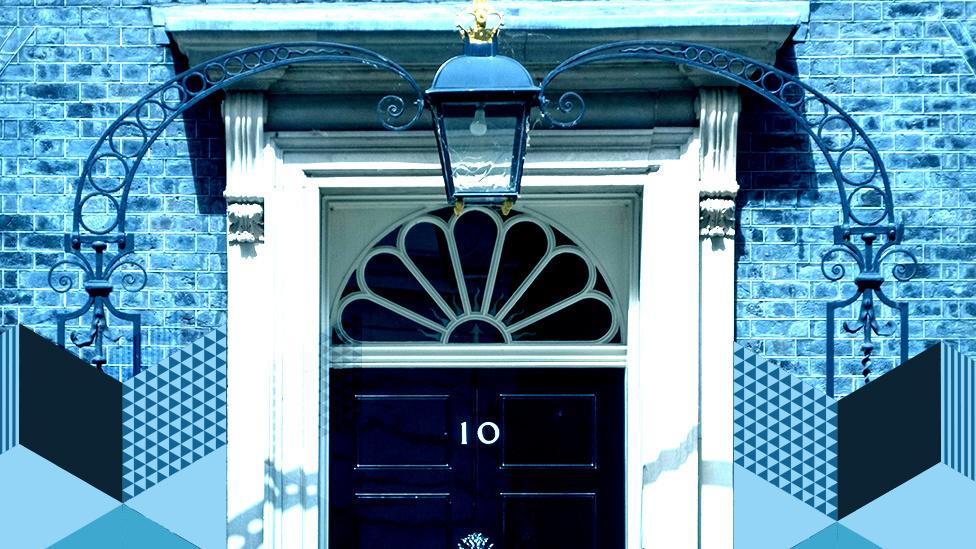Rishi Sunak hits back at Tory leadership tax critics
- Published

The process of whittling down the wannabes is about to begin.
In eight weeks' time, if not before, we will have a new prime minister.
Those hoping to replace Boris Johnson now face their first hurdle: finding 20 of their colleagues to agree with them that they should get the job.
That is what is required to get on the first ballot paper that will go before Conservative MPs on Wednesday afternoon.
And to make the second round of voting, on Thursday, they will need at least 30 votes.
Those two hurdles are likely to put a significant squeeze on what is currently a cacophonous and crowded field, and we will also start to see, crucially, where the support for some of the rejected candidates goes.
By a week on Thursday at the latest, when Parliament packs up for the summer, there will be just two candidates left.
Were, at that stage, one of them to drop out, as happened when Theresa May became Prime Minister six years ago, we would have a new prime minister by the end of next week.
So how is the race shaping up so far?
While describing it as Rishi Sunak versus the rest would be an exaggeration, it wouldn't be much of one.
All the other candidates, to one degree or another, are gunning for his record as chancellor, and the current levels of taxation and government spending.
Plenty, including those who served in the very government that did exactly what they are now grumbling about, say the amount of taxing and spending is un-Conservative, and they would seek to do something about it pronto.
On Tuesday, we'll hear the response from the man who - until last week - was chancellor.
Proud but defensive
At a news conference, Rishi Sunak will pointedly repeat his jibe at his rivals - that those proposing big tax cuts are offering "fairy tales," whereas he will stand up for what he calls a "return to traditional Conservative economic values" and "honesty and responsibility".
He will unveil another former Conservative chancellor, Lord Lamont, as a supporter.
A big name in Tory circles, yes, but also the man associated with what became known as Black Wednesday, external in the 1990s, a calamitous day for the then Conservative government's reputation in managing the economy.
What is striking in what we are told Mr Sunak will emphasise how proud, but also how defensive he appears to be about his record at the Treasury - pointing to the furlough scheme during the pandemic and a record number of job vacancies in the economy, for instance.
It underlines how in these early skirmishes, a direct political assault on his record is absolutely central.
The big test, and as yet unanswered question, is how he will respond to the pressure.
Related topics
- Published5 September 2022

- Published24 October 2022
